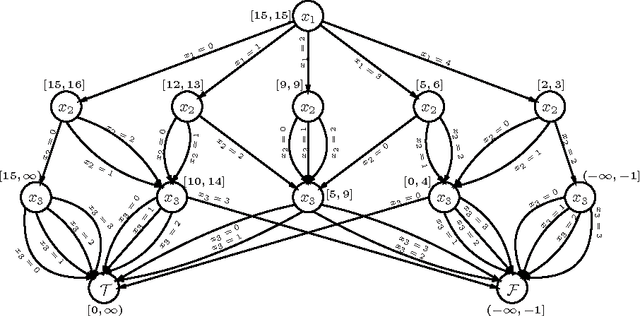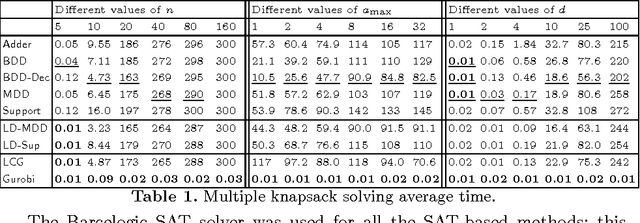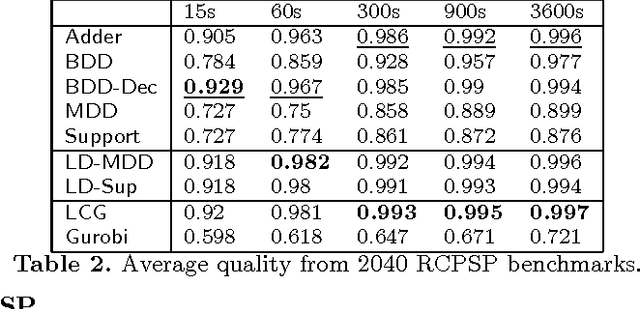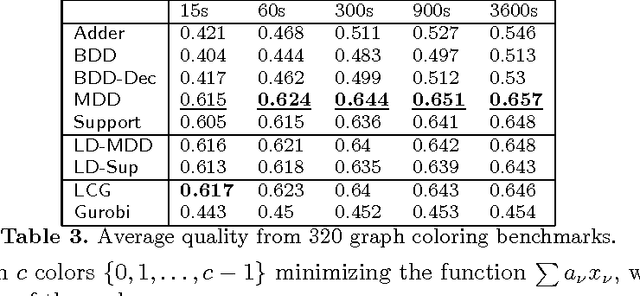Ignasi Abío
Encoding Linear Constraints into SAT
May 05, 2020



Abstract:Linear integer constraints are one of the most important constraints in combinatorial problems since they are commonly found in many practical applications. Typically, encodings to Boolean satisfiability (SAT) format of conjunctive normal form perform poorly in problems with these constraints in comparison with SAT modulo theories (SMT), lazy clause generation (LCG) or mixed integer programming (MIP) solvers. In this paper we explore and categorize SAT encodings for linear integer constraints. We define new SAT encodings based on multi-valued decision diagrams, and sorting networks. We compare different SAT encodings of linear constraints and demonstrate where one may be preferable to another. We also compare SAT encodings against other solving methods and show they can be better than linear integer (MIP) solvers and sometimes better than LCG or SMT solvers on appropriate problems. Combining the new encoding with lazy decomposition, which during runtime only encodes constraints that are important to the solving process that occurs, gives the best option for many highly combinatorial problems involving linear constraints.
A New Look at BDDs for Pseudo-Boolean Constraints
Jan 23, 2014



Abstract:Pseudo-Boolean constraints are omnipresent in practical applications, and thus a significant effort has been devoted to the development of good SAT encoding techniques for them. Some of these encodings first construct a Binary Decision Diagram (BDD) for the constraint, and then encode the BDD into a propositional formula. These BDD-based approaches have some important advantages, such as not being dependent on the size of the coefficients, or being able to share the same BDD for representing many constraints. We first focus on the size of the resulting BDDs, which was considered to be an open problem in our research community. We report on previous work where it was proved that there are Pseudo-Boolean constraints for which no polynomial BDD exists. We also give an alternative and simpler proof assuming that NP is different from Co-NP. More interestingly, here we also show how to overcome the possible exponential blowup of BDDs by phcoefficient decomposition. This allows us to give the first polynomial generalized arc-consistent ROBDD-based encoding for Pseudo-Boolean constraints. Finally, we focus on practical issues: we show how to efficiently construct such ROBDDs, how to encode them into SAT with only 2 clauses per node, and present experimental results that confirm that our approach is competitive with other encodings and state-of-the-art Pseudo-Boolean solvers.
 Add to Chrome
Add to Chrome Add to Firefox
Add to Firefox Add to Edge
Add to Edge